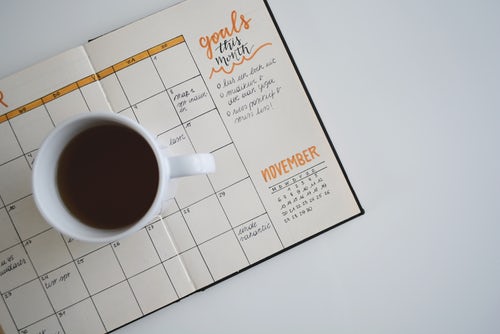Well, it’s likely that you’ve fully embraced your New Year’s resolutions and are hot on the path of pursuing them, you have them written down, or you have them tallied up in your mental storage.
But if you want to make life changes, is that the best way for you to start?
Instead of coming up with an endless list of resolutions, why not try a more focused approach, one that is more likely to bring you success.
Why not try formulating an annual overall health self-assessment first?
Advantages of first doing a health self-assessment—
Most people realize that the majority of New Year’s resolutions are abandoned with the first month of the new year. While there may be many reasons for that, an important one is that the resolution was either not carefully thought out or planned out.
There really was no solid basis for the resolution and logical path to follow to get there.
What is a health self-assessment?
With a self-assessment, you can gather the critical information to allow you to take a magnifying glass look at exactly where you are in life, identify the paths that need the most attention, care and adjustment and give you a guide for designing a change blueprint, making those important changes, increasing your chances of success and enjoying satisfying and effective life changes.
But what areas should you target in your assessment?
5 self-assessment focus areas—
- Spiritual. While most professionals will list physical s the first category, I argue that your spiritual life is the most important one and the category upon which you structure and develop the other four.
Why is spiritual so important? Because a healthy spiritual life, with weekly church or religious organization attendance and involvement, has been shown to be a critical component in all communities where longevity and effective aging are the most successful. (We’ll explore this more when we talk about Blue Zones.)
Studies show spiritual health is associated with greater wellness. So if your aim is for wellness, why not use spirituality as your strong foundation? Something that involves more than just personal meditation (which is a critical component), or interacting with nature (also important).
My Meditation Mondays blog posts can help you with the spiritual category; but for now, make a personal assessment on how much time you spend—
- Meditating
- Praying
- Attending church or a religious service
- Gathering with like-minded friends of the same faith
Decide what you need (more Bible study, more prayer, engage with a local congregation) and take whatever steps are necessary to open and enrich your life to your spiritual needs and health.
- Physical. Always focus on staying healthy, but make sure you fashion your fitness plan or program to meet specific goals.
Don’t be vague or general. Make a list of specific goals you want to meet. If you want to gain a certain cardiovascular fitness, decide what that fitness level will be and what it will take to reach it and maintain it.
What if you’re older and just want to aim for having more energy to run around with your grandkids, without having stiff knees or back, or couch-calling fatigue. What is it that’s driving you and the change or goal?
Knowing the specific answers to these questions will help you stay motivated and enjoy more success.
- Intellectual. Make sure you devise a category, and activities, to exercise your brain and mental stamina.
- Learn something new.
- Play board games or crossword puzzles.
- Study a subject you’re unfamiliar with.
- Pick up a new activity. Exercise a different way. (Yes, this does trigger brain neuron growth.
- Take a class at a local college or community college. Many colleges allow senior citizens to audit classes without charge.
- Take an existing passion or skill to a new level. Improve upon what you already do or know.
- Join a book or chess club, or conquer your public speaking fear by joining Toastmasters!
- Social. This is another Blue Zone must—having a strong social network. We’re not talking a fraternity house number of friends, but a handful of really close people you can share your heart with. People who support and encourage and pray for you. Those you can call for help and rely on. People you can laugh and cry with, dine with, and live out life with.
- Financial. Stressing about financial issues is one of the type 5 stressors on the life stress and depression-triggering list. It’s also one of the top reasons couples end up in counseling and divorce court.
So do the dirty (and probably unsavory) work of figuring out your financial status and what you need to do to improve it. While some of the changes you have to make may be drastic, like forgoing any dining out or downsizing from a spacious home to a cozy apartment. Purging the stuff you hoarded and stored in the garage. Living more simply.
These are not quality of life changes, but they might be quantity. Once you bite the bullet, so to speak, and make them, you’re likely to enjoy the simplicity and freedom you feel as you reduce your debt and feeling of being chained to work and monthly debt payments.
Decide what you want to do—like travel more, maybe—and draw up some plans and charts to meet that goal.
So start your 2019 right! Take the steps to really make this new year happier health-wise.
NEXT WEEK: We’ll take a quick look at the new fitness guidelines and talk about what they mean for you!
Until then,
Blessings,
Andrea
“Certainly there was an Eden….We all long for it, and we are constantly glimpsing it.” —J.R.R. Tolkien




